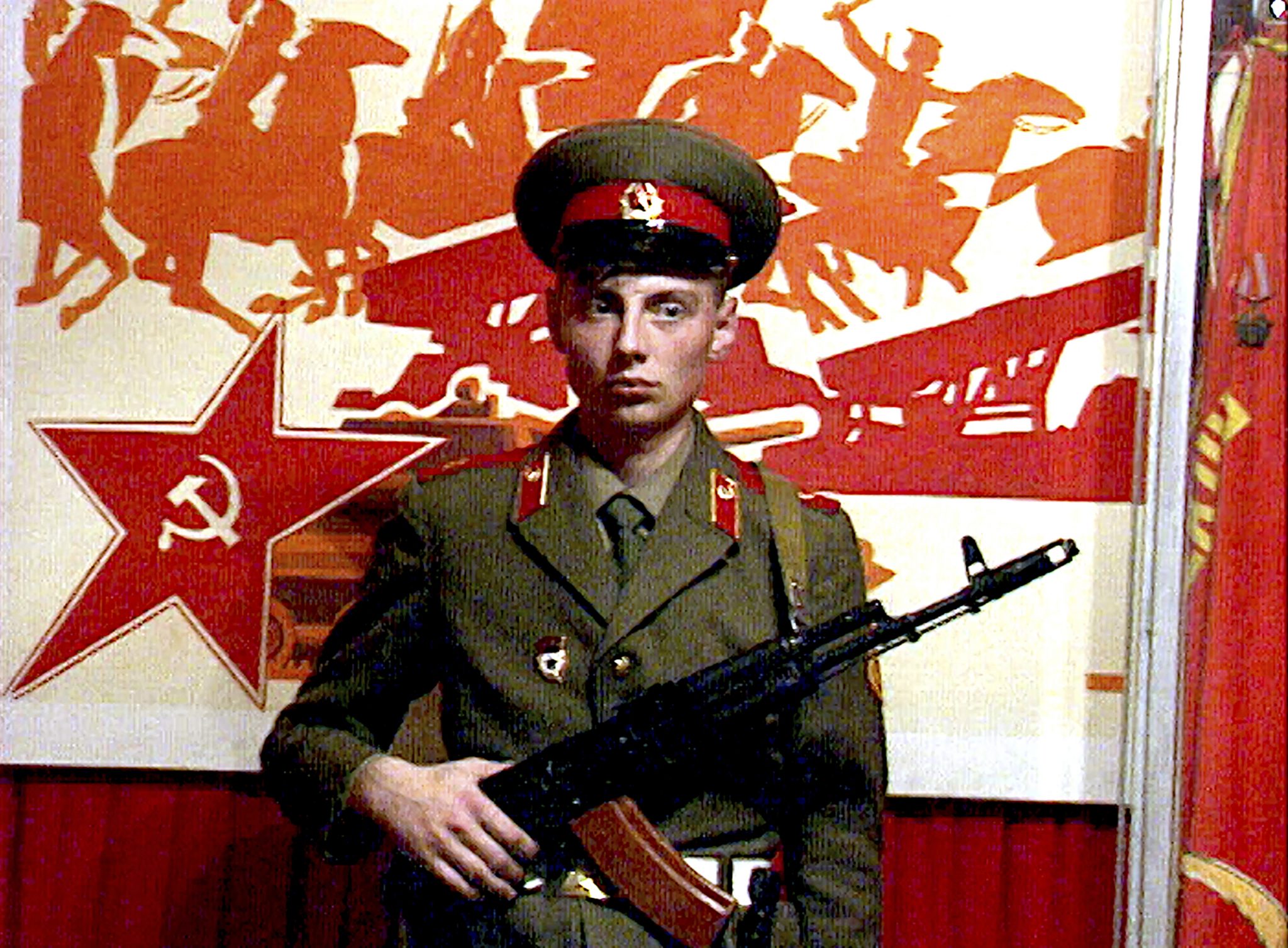(Or why you should read Svetlana Alexievich instead)
The Belarusian Nobel Literature laureate Svetlana Alexievich’s masterpiece Second-Hand Time (2013) tells the story of the collapse of the former Soviet Union from the ground up. Fashioned primarily from monologues Alexievich sculpted from interviews she conducted with ordinary post-Soviet people, and arranged almost symphonically, we are given a sense of the full significance and scope of the devastation – political, military, and economic – that the end of the twentieth century brought to a country which had once seen itself at the vanguard of the history of the world. In Second-Hand Time, Alexievich adopts the perspective of Walter Benjamin’s ‘Angel of History’, blown back across the ruins of the past, gawping with compassion and despair.
In his new BBC series Russia 1985-1999: TraumaZone (2022), the British documentary film-maker Adam Curtis seems to be trying to pull a similar trick off. Constructed from ‘never-seen-before’ archive footage that Curtis has somehow managed to source, TraumaZone tells the story of what happened in the former Soviet Union as first Communism, and then the new liberal democracy ostensibly installed there in the aftermath, collapsed.
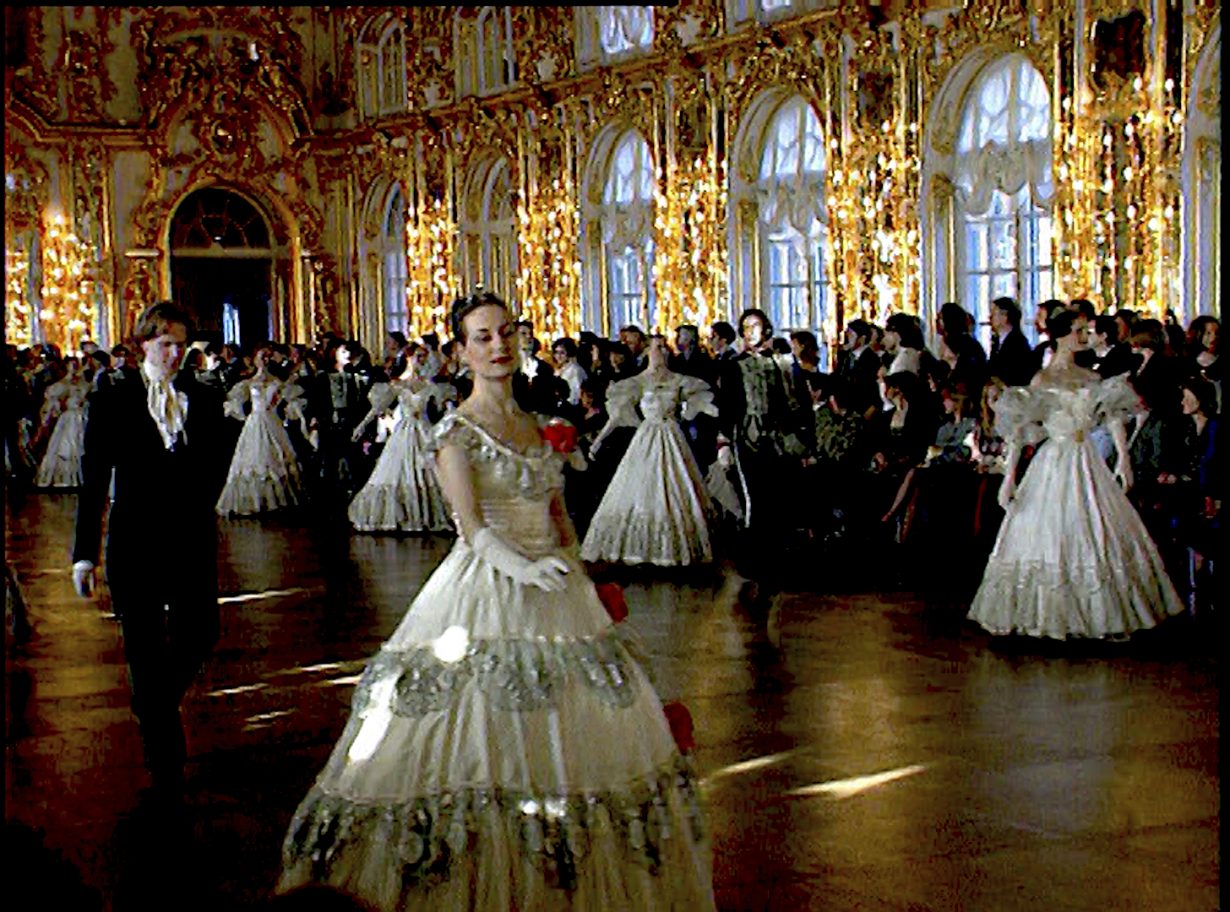
The series is timely – and not just because it can help us see how Russia ended up sliding into the sort of death-cult nationalist authoritarianism now fuelling Putin’s war in Ukraine. Britain, right now, has a distinctly ‘late Soviet’ feel to it: the Union is on the verge of fragmenting, the economy is on the verge of collapsing; traditional elites are setting about plundering the country – no longer interested in regaining the legitimacy they have long since surrendered in the eyes of the public. Something is bound to replace all this, soon – but you do worry that it’s almost certain to be worse. Obviously the scale is very different, and the situation in the regions far less likely to collapse into all-out ethnic war. But you get the idea.
The problem with TraumaZone, however, is that it isn’t really very good. I feel really torn up about admitting this, as Curtis is usually a wonderful filmmaker, with an instantly recognisable style: essayistic monologues, usually about how things, over the course of the twentieth century, ended up turning out for the worst, juxtaposed with masterfully curated archival footage, which both offsets and expands upon what Curtis is saying. I grew up with series like All Watched Over By Machines of Loving Grace (2011), and loved last year’s Can’t Get You Out Of My Head (2021), which felt like it exhibited a perfectly-refined Late Curtis style: the well-trodden ground of his usual obsessions coalescing around a narrative which felt almost like a vast, globe-trotting post-modern novel, starring the likes of Jiang Qing, Michael X, and Tupac Shakur.
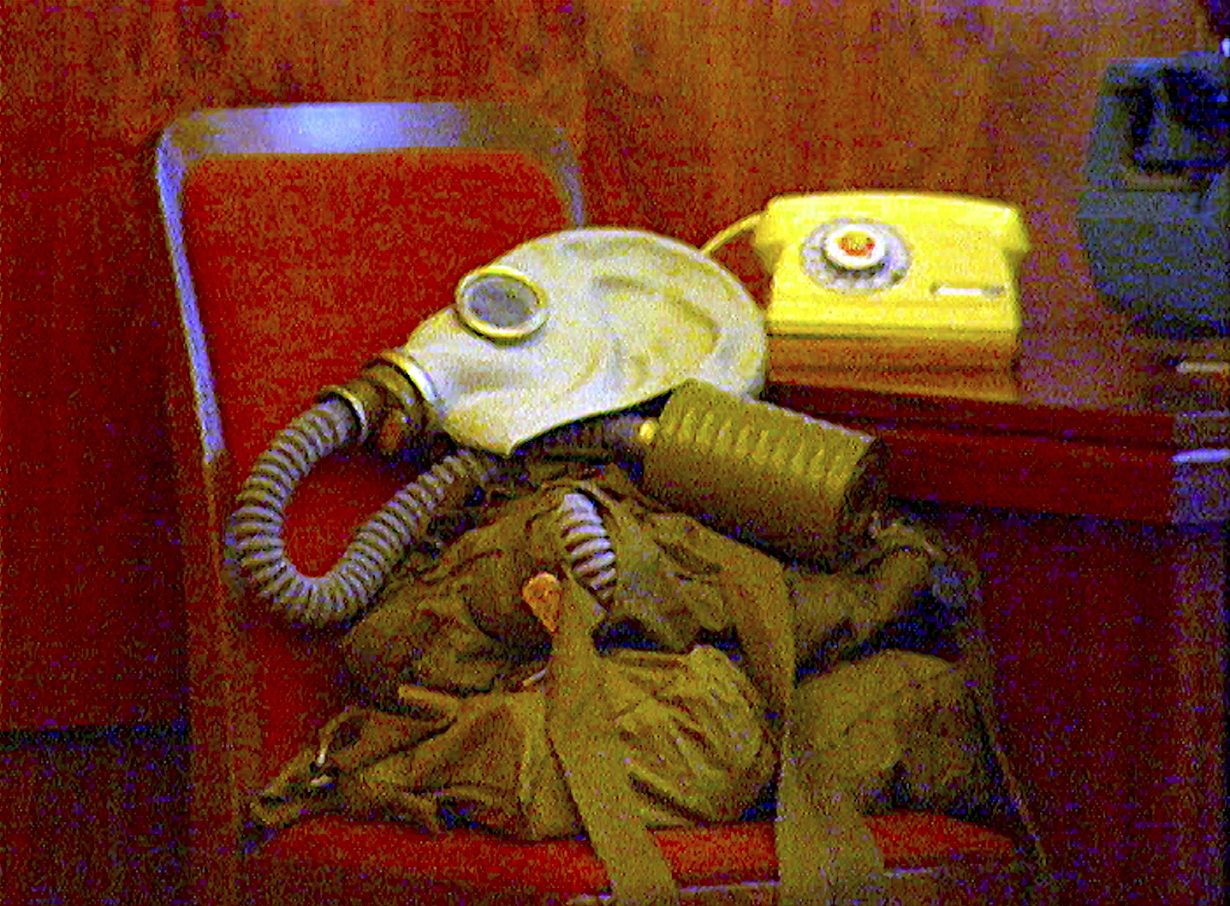
But TraumaZone isn’t quite recognisable as a Curtis film. The bricolage of archival footage is still there, but Curtis’s own voice feels not only audibly but editorially submerged, the story he is telling indicated only by brief explanatory flashes of text. I suppose I get what he is doing here: Curtis wants to tell the story of Russia, Ukraine, and the rest of the former Soviet Union – he does not want this to be just a film about his views. He wants to suppress his own voice for a reason: to force the archive footage he is presenting to constitute an Alexievich-style epic chorus, in short.
This much makes TraumaZone an admirable experiment. But it doesn’t work, for two main reasons. The first is that whereas Alexievich, writing Second-Hand Time, could talk to pretty much whoever she wanted (and edit the testimony they gave her however she wished), Curtis is far too constrained by the resources he has at his command (Alexievich could always interview more people; Curtis only has a finite range of footage available for us). He manages to present some interesting footage, sure: one episode spends much of its run following a woman at the height of the post-Soviet economic crisis, trying to get an abortion because her family can’t afford to rent enough space to house a (much-wanted) second child; another tracks a young girl of around six of seven, begging on the streets of Moscow, before using her earnings to buy a meal from the newly-opened ‘first Soviet McDonald’s’. But there’s not enough of that sort of stuff, which works on a human level, to really command your attention – and so over the course of seven hours, TraumaZone becomes a slog.
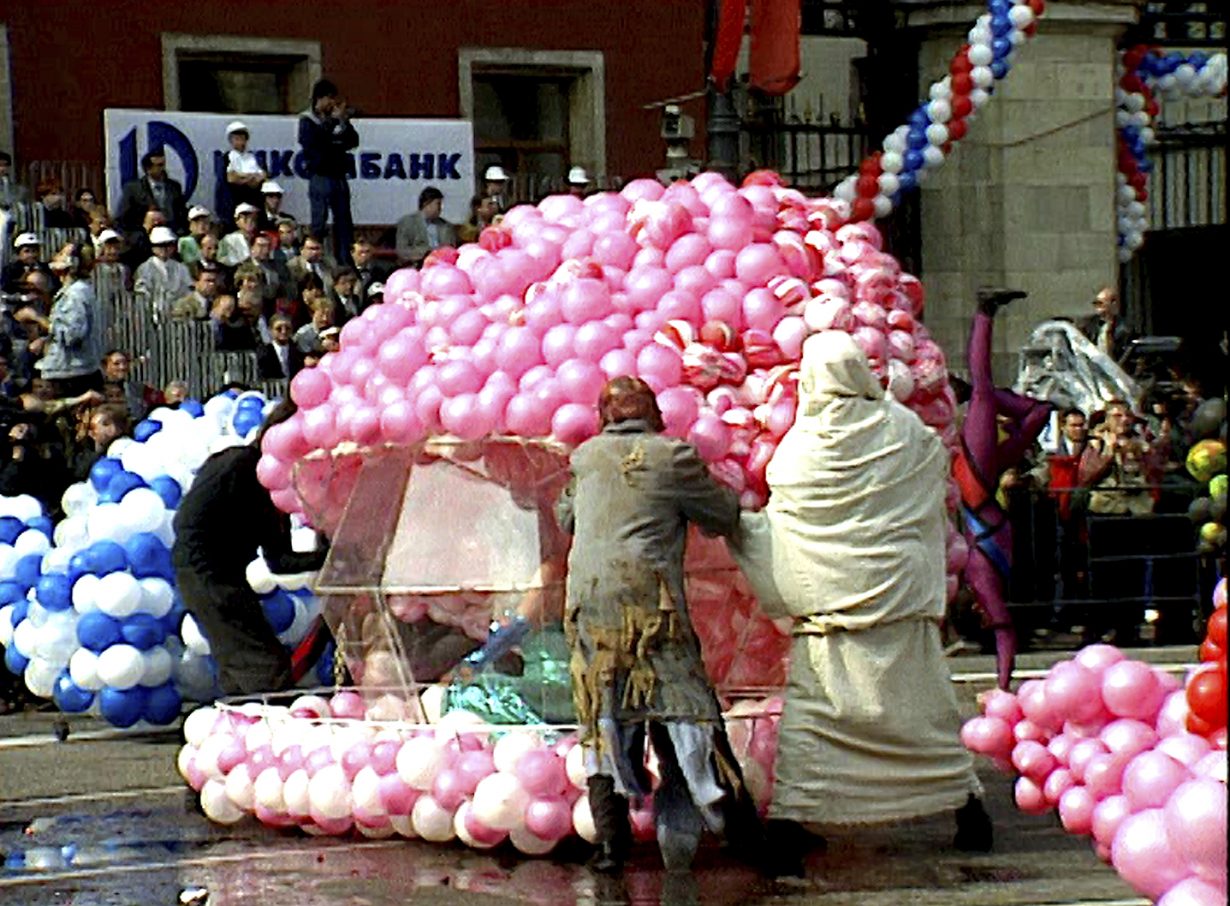
The constraints presented by the footage also mean that, secondly, this story can’t be told in anything like the scope it really demands.
The narrative presented here is hardly unorthodox (another reason that this doesn’t really feel like an Adam ‘but those were just fantasies’ Curtis film): Gorbachev tried to save Communism by liberalising the Soviet Union, but this only ended up exposing the cracks in the system, which were then exploited by Yeltsin to force him out. Yeltsin initially seemed impressive, in wrestling control of the country from the old Soviet nomenklatura, but quickly proved unable to govern it, forcing through the US-backed programme of ‘shock therapy’ which brought capitalism to Russia at disastrously breakneck speed, directly resulting in an immense movement of wealth away from it. As the situation deteriorated, not only in Russia proper but in places like the independent post-Soviet states of Ukraine and Georgia, or the Russian republic of Chechnya, Vladimir Putin emerged to fill the power vacuum, again receiving western backing as the only man apparently capable of stabilising the post-Soviet situation. Any meaningful semblance of democracy in Russia was done.
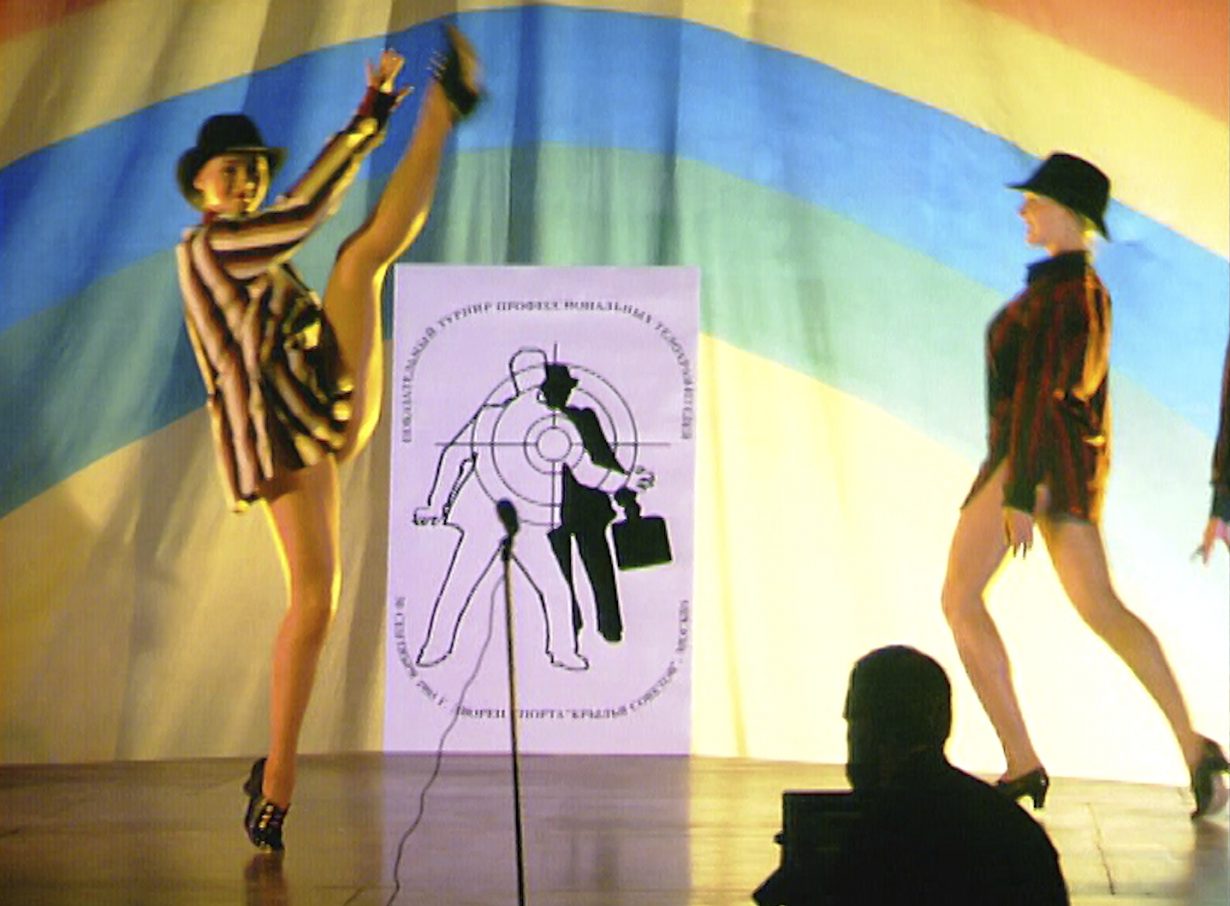
Admittedly: I might be wrong about this last bit, as I haven’t seen the last two episodes. But I imagine this is basically where the narrative is going. I’ll be honest: I didn’t make it to the end. I’m sorry. It’s not like I found every second of TraumaZone actively painful to watch. It’s just that every episode was such a long hour, I found myself genuinely dreading loading up the little app the BBC give you to preview their shows. I started to feel time slipping away.
Anyway: the point is that the story Curtis is trying to tell is one that, basically, concerns a continent, or actually spans more than one continent. But the paucity of narration means it is impossible for him to add enough subtlety to compensate for the obvious Moscow-centricity of the footage (throughout one is reminded, via negativa, of just how good Curtis usually is at constructing big-picture narratives, when he inserts himself into them). When we see bits of the former Soviet Union that are not Moscow, they are either Kiev, or warzones, or only glimpsed very fleetingly. This film purports to present us with Soviet and post-Soviet ‘everyday life’. But mostly we get, you know: Moscovite everyday life. And again, there are unfavourable comparisons to be made with Alexievich here. Her book left me with a real sense of what Soviet and post-Soviet life might actually have been like. Curtis’s film, on the other hand, shows us what the bits of the former Soviet Union that people with BBC cameras were likely to film might have been like. The latter thing, sadly, falls far short of the former.
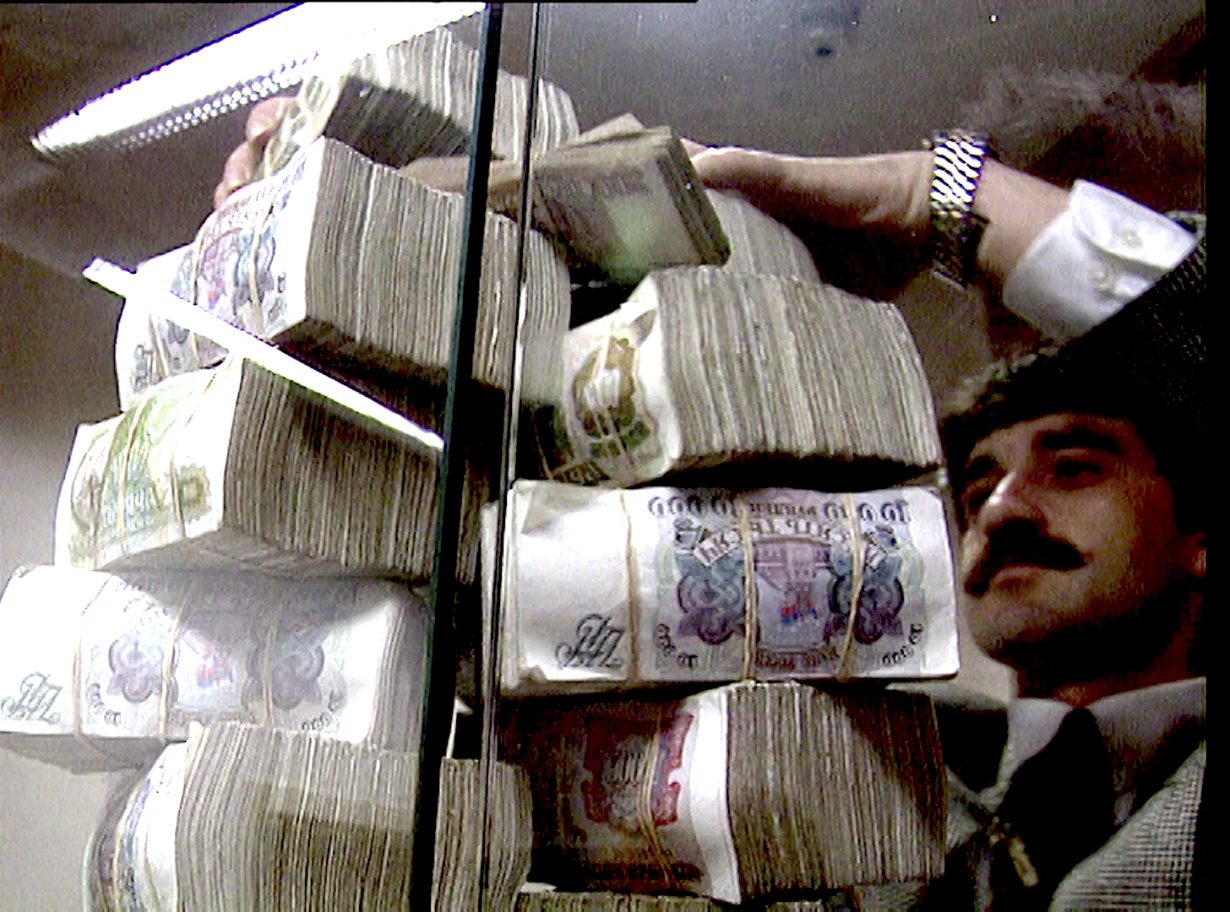
Ultimately then, if you want to know what it was like to live through the slow, painful collapse of what was once one of the most powerful nations on earth, TraumaZone can’t really deliver. Luckily for anyone reading this in Britain though, you can simply look out the window instead. I’ll see you for next year’s TrussZone – provided, that is, we all still have electricity by then.
